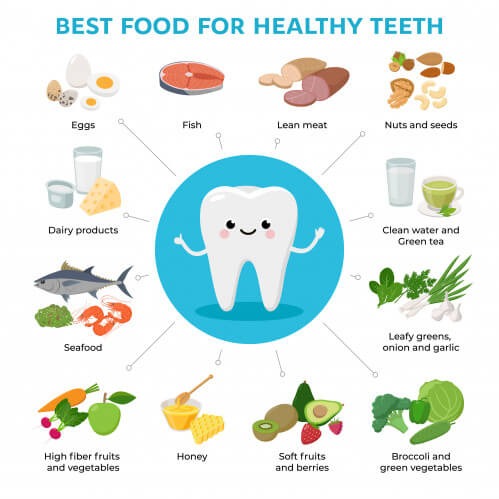Nine Essential Nutrients Every Child Needs

A healthy diet is important for everyone, but for your child's proper growth and development, they must get their recommended daily allowances of bone-growing, muscle-strengthening vitamins and minerals.
A colorful diet based on whole foods like dairy, fruits, vegetables, whole grains, and lean meats will help make sure your child has all the building blocks so their body can function at its best.
Here are nine essential nutrients their developing bodies need and where to find them:

Calcium
What it Does:
- Essential for the development of healthy teeth and bones
- Helps regulate muscle contractions like your heartbeat
- Helps normal blood clot function
- Calcium is found in dairy products, green leafy veggies like kale and spinach, and edible fish bones like those found in sardines. Cheese is an ideal source because the casein found in cheese is a protein that helps strengthen tooth enamel!
Magnesium
What it Does:
- Helps the body absorb calcium
- Helps make sure the parathyroid glands, which produce hormones important for bone health, work normally
- Magnesium can be found in pumpkin seeds, almonds, fortified dairy products, and dark leafy vegetables.
Vitamin D
What it Does:
- Helps your intestines absorb more calcium
- Make bones and teeth dense and strong
- Helps prevent fractures
- Vitamin D can be found in egg yolks, oily fish, and fortified dairy, bread, and cereals.
Iron
What it Does:
- Makes red blood cells that fight disease and infection and helps carry oxygen through the blood
- Foods rich in iron include eggs, seafood, red meat, green leafy vegetables, nuts, red kidney beans, and enriched bread and cereals.
Phosphorous
What it Does:
- Naturally protects and rebuilds tooth enamel
- Phosphorous is found in high amounts in dairy, beans, lentils, and meats.
Potassium
What it Does:
- Guards against the weakening of bones
- Essential to helping your blood clot
- Controls balance of fluids in the body
- Help keep heart muscle working properly
- Natural potassium sources include bananas, beans, nuts seeds, mushrooms, and avocados.

Vitamin A
What it Does:
- Help keep saliva flowing
- Promotes a healthy mucous lining in the mouth that coats cheeks and gums, making them less susceptible to infection and disease
- Aids your body's immune system
- Helps you see well in low-light conditions
- Keeps skin healthy
- Foods rich in vitamin A include carrots, eggs, sweet potatoes, and fish.
Vitamin C
What it Does:
- A potent antioxidant that helps heal gums
- Fights inflammation
- Helps the body produce collagen, which helps with cell repair and the healing process
- Maintains healthy skin, blood vessels, bones, and cartilage
- Foods rich in Vitamin C include oranges, grapefruit, and kiwi.
- Vitamin E
What it Does:
- Decreases inflammation in the mouth
- maintains healthy skin and eye tissue
- Strengthens the body's natural defense against illness and infection
- Vitamin E can be found in nuts seeds, plant oils, wheat germ, leafy green vegetables, fish, and avocado.
Keeping your children healthy may seem like an impossible task. But helping them by offering healthy foods and limiting processed food and sugar will create healthy habits that will carry them through adulthood.



Please login to publish a comment.
Comments (0)